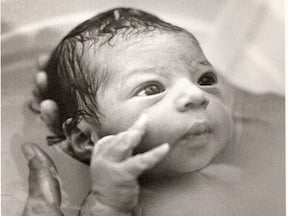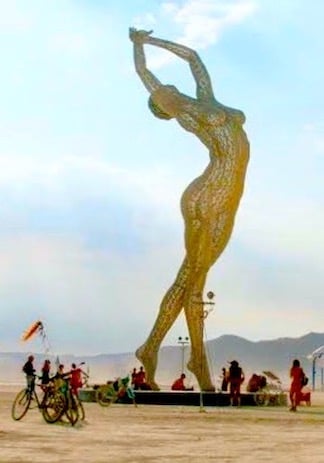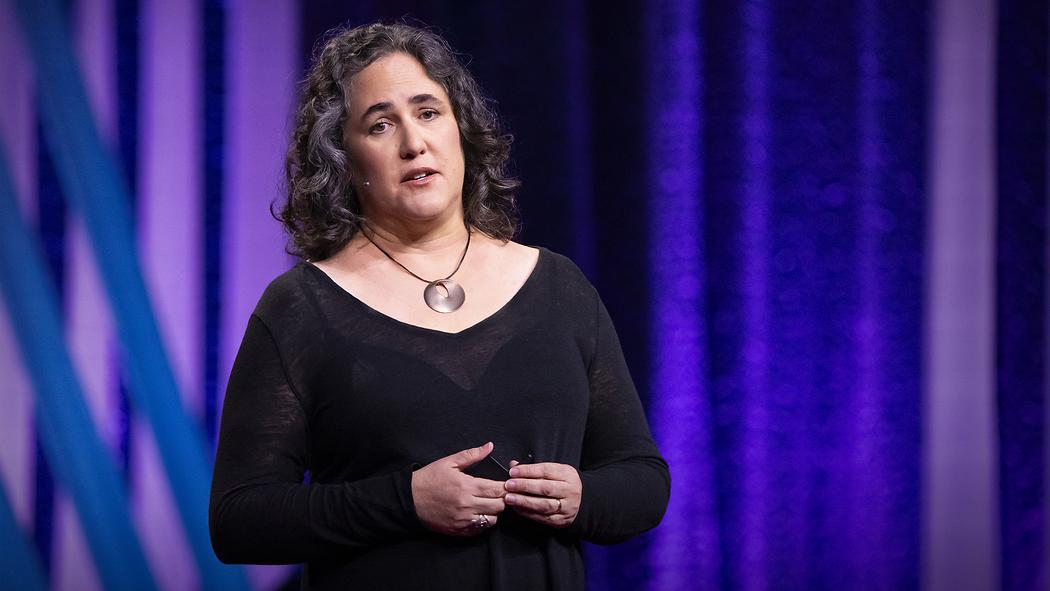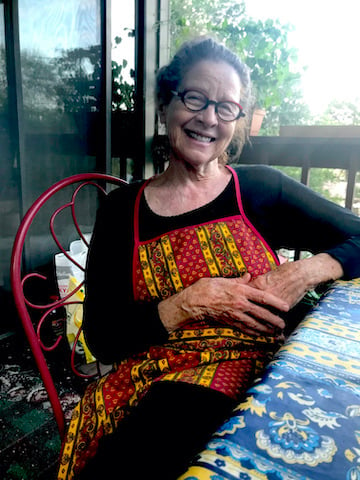

Finally: Part 9 of my 9 parts!
At long last! Here’s the final installment of my 9-part series on abortion, which I’ve titled: Re-Framing abortion: Sex, Money, Power & Fear of the Sacred. You deserve a medal, and my sincere thanks!
It’s been a journey for me to complete this overly long piece, that I began writing 2+ years ago… all the more so because I’ve had a lot of illness and injury in the past 9 months and a great of pain to contend with. I won’t bore you with what a good friend of mine who also had cancer calls “an organ recital”. Aaah.
*****
Up until now, I’ve attempted to keep the tone of my writing dispassionate: thoughtful, respectful of all sides, and calm, while making it clear what my personal belies are. My hope was to elicit the interest of some people who’ve named themselves as “anti abortion” or “pro-life”to think more deeply about this vitally important issue that relates to the bigger issue of reproductive health and justice.
I hope some folks who are not rigidly anti-abortion will reconsider your stand, in light of the dangerous consequences of making abortion a crime. Or at least softening your position. I know it’s unlikely that anyone passionately opposed to abortion will have read more than the first page or two of this 9-part series, much less gotten this far.
I’m mainly interested in reaching those who are not sure where they stand or who who say they are “pro-choice” but haven’t thought deeply and broadly about the subject. My hope for those of you who’ve stuck with this piece this far is that you find compassion for those who are opposed to abortion and that you find discussion points with which to engage them in conversation.
The further away the U.S. is from the initial Supreme Court ruling 2+ years ago, the more clear it is that there are disastrous results in the lives of many, many women and their families and one result has been a big rise in infant mortality. I think of it as a war, with those who are innocent - babies - bearing the brunt of the pain and suffering. And I feel outrage. It’s about time men took responsibility for what has been done by men to girls and women over the eons in an attempt to marginalize and silence us.
I hope those of you who’ve stuck with reading my thoughts thus far, probably most of whom already call yourself “pro-choice” now have more that you can talk about - and listen deeply to others about…with your friends, family and colleagues.
If you have been unaware of the deep hatred of women - and all things feminine, especially nature - that many men carry…and some women too, who’ve been socialized against their own nature…I hope you are more “woke” about it.
Keep this now proven fact in mind":
The majority of us are not swayed in our beliefs by so-called “facts”, even those which are backed by a lot of evidence-based research. We humans are creatures who all too often go with our “gut” feelings, which too often have been shaped not by listening to our body but by authority figures was trusted. If we listened deeply to and trust the “still, small voice” within, I feel we’d be much better off. But in our patriarchal, overly speedy, culture we live in, it’s hard to be still for even a few minutes and to quiet the noise all around us and in our heads. So hard to pay attention to the quiet voice within, which combines both our heart and our ability to think deeply.
Please do dare to engage in the difficult topic of abortion. I have to push myself to do that with those I’m closest to, especially my own family and friends! You’re not alone.
*****
In the prior 8 parts of this overly long piece, I discussed most of the things which I find hypocritical in the so-called “pro-life” stance. Here’s a big one: the idea that government should stay out of people’s private lives and bedrooms EXCEPT when it comes to a woman wanting an abortion. I think this is a crucial talking point in any conversation we have with those who are anti-abortion.
It is hypocritical to want NO government intervention in our private lives, while at the same time wanting this same government to prevent women from having agency over their own bodies and being able to have safe abortions. There’s a connection between calling one’s self ß“pro-life” and hold a libertarian value that no restrictions should be placed on what someone does on their private property, while asking/demanding that government to force their beliefs on others.
Examples of things some people want the government to intervene with or make illegal:
1) same sex marriage,
2) trans-identified youth receiving medical care,
3) children of immigrants receiving medical care
4) women from having access to proven safe over-the-counter abortion-producing drugs that they can take in the privacy of their own home
And the list goes on, as many are trying to:
5) criminalize doctors and other health care professions from caring for women who want or need an abortion or are in the middle of a miscarriage and could die from infection or blood loss
6) force librarians to remove so-called “offensive” books from school and public libraries
7) prevent all teaching of sex education in the schools
8) the sale of contraceptives, and giving those working in pharmacies the “right” to refuse to sell contraceptives, as part of their religious freedom
WHEW! I’m angered just finishing this partial list…
*****
Let’s talk for a moment about the ingrained view that has been passed down from generation to generation in many cultures and families: parents having total right to make decisions about their children’s bodies, education, health care, etc. Many who claim to be “pro-life” because life is sacred and children are sacred, hold the belief that their children are their “property”, to do with as they see fit. This belief runs contradictory to how humans in traditionally viewed and treated children, which is that raising children to thrive is everyone’s shared responsibility.
Reminder:
While wanting to keep ownership over their own children, many adults in this country, insist that it’s not their - or their government’s - responsibility to provide for a woman and baby over the long-term, when it was that woman’s supposed “choice” to get pregnant in the first place. In recent decades, “pregnancy centers” have sprung up in shopping centers across the U.S., often right alongside day care or HeadStart Centers. The clear intent is to confuse the public and cause a troubled pregnant woman, especially young woman, to believe they will offer her unbiased knowledge and help.
As I wrote in Part 8, adoption is not the easy solution. Children relinquished at or near birth often carry a lifelong wound and are haunted by the sense that they are “throwaways”. In my research and from interviewing adoptees, birth parents, adoptive parents, and teachers of kids relinquished or taken away at or soon after birth, I discovered that adoptees tend to fall on one end or other of the emotional wellbeing spectrum.
As kids and throughout teen years and adulthood, adoptees (like kids raised in foster homes) tend to be either high-performing but driven and anxious, or low-performing and self-abusive or aggressive. This is not information widely known; but teachers know. And so do adoptive parents, although it’s hard for them to accept the truth that their adopted child bears scars from having grown in the womb of a woman who didn’t want or couldn’t keep them, and then having been relinquished at birth.
*****
To summarize my current observations, about abortion - subject to change if and when I learn more and become more conscious:
Every child and every adult’s body inherently belongs to them - not to their family, not to a set of traditions, not to a religion, or any outside authority.
A woman’s womb - regardless of her age - belongs to her. A womb is about as Feminine as nature gets. It is such a sensitive organ that even, sometimes, withdraws/“migrates”, or repositions itself after the woman has experienced trauma
NOTE: When a woman’s womb is believed to belong to – is de facto “owned” and controlled by – an outside agent, whether a husband/partner, a legislative body, a judge or a religious institution or leader, this most intimate part of her body, is turned into a product akin to a postage meter. And, as with a postage meter that you rent from the outside agency called a Post Office, it may sit on your desk (or, in this case, in the woman’s body) and she/you may use it. But she/you should never forget that you don’t own it! She becomes an indentured servant or slave to an outside force.When any person, group or system declares ownership of a female body, unwanted pregnancy and birth become forced labor (pun intended!). You need only to look at what goes on in the hospital labor and delivery unit to understand this.
Little known important fact: When a baby is born in a U.S. hospital and is not kept in the arms of one of its parents or family members, the hospital has legal ownership of that newborn. Agents of the hospital, in this case, doctors/nurses, are legally entitled to make whatever decisions they feel are best in caring for this infant while it’s under their custody. In labor, parents are never told this. Furthermore, when a woman who is legally a “minor” gives birth in a hospital, doctors/nurses feel entitled to make decisions for her on behalf of her baby. And judges often uphold this.Roe was overturned (handed over to the states to allow or outlaw) by a Supreme Court whose members are not elected include 5 very conservative Catholics and 1 extremely conservative, fundamentalist evangelical Catholic. This court is comprised of six men. These judges serve for a lifetime and up until now there has not been any way for the public or any other part of the U.S. government to hold them accountable or get rid of them.
For as long as abortion and contraception issues are to each U.S. States (and their mainly male legislators) to decide upon, many women of all races, backgrounds, and ages will continue to suffer and even be permanently damaged physically, psychically, spiritually, and sexually, or die from lack of caring and skilled care. This is a proven fact that has been true historically, across the world. And evidence proves it is still true.
The “Feminine” principle is the generative, life-giving force in nature. It must be honored as well as respected, if we are to be truly civilized and fully human.
If we profess to care about life, then we must care about the wellbeing of the mother, whatever her age, circumstances, background.
If we profess to care about the wellbeing - and rights - of babies then we must face the paradox that every baby and its biological mother are actually one physiological unit - a symbiotic pair who need each other for their full development - but who may nevertheless have differing needs. Examples of mother-baby symbiosis abound. Without the baby suckling at the mother’s breast after birth, her body will not produce the hormones that make her uterus contract firmly and she may hemorrhage (bleed excessively).
Yes, babies/prenates/fetuses have rights, in the womb, at birth and in the weeks afterward, as they are physically separating from the mother. It is right then that the biological mother make decisions on behalf of that baby until - or unless - she is proven incompetent to do so. The rights of the biological father may also need to be considered.
We must prioritize the childbearing woman, her needs and her desires, above that of her fetus/prenate/baby, until that that being is developed sufficiently to live independently outside of its mother’s body. That usually occurs between 22 and 24 weeks gestational age. Only then, I argue, ought that tiny being be viewed as a person and accorded separate, individual rights.
There’s growing evidence that babies are not only sentient and aware, but also “conscious” in the womb, at conception and, as a soul, even before conception. Nevertheless, being viewed as a separate individual at, say, 14 weeks, is different from a baby being capable of sustaining its own life outside the womb [breathing, maintaining its temperature etc] and therefore deserving of having individual “rights” apart from it’s biological mother.There is a wealth of evidence-based data to support that, overall, women want the best for their children, including their unborn. The rare exceptions, women who abuse their babies and children, do so because they themselves have been abused/neglected or are living under the domination of a man who hates babies/children and wants to control that woman.
Under the economic system called “capitalism” (as practiced in the U.S.today), corporations have virtually unlimited power. Capitalism is a product of patriarchy, which created the belief that girls and women are inherently less than men and need to be protected and cared for by men, because they can’t be trusted to know what is best for them or their offspring.
AND, under capitalism, babies are turned into commodities, products.
Outlawing abortion turns pregnant women - all women, whatever their age - into man’s “property”, with forced pregnancy and forced birth producing a “product” called a baby. This product is seen as having greater value than its mother. This viewpoint, which is still strongly held in many Christian, Jewish and Muslim places of worship and homes, displays a fundamental devaluing of the feminine.Starting at conception, every human being has innate (biological and neurological) needs that must be met if they are to fully develop and thrive physically and emotionally. To become fully human, requires parenting and communal caretaking that also honors a child’s sou and spirit. Babies are increasingly senscient, aware and, “conscious” as they develop in the mother’s womb.
Evidence is showing that the several weeks prior to conception are also part of this baby’s development. During this time the female egg and the male sperm are able to be altered according to the environment in which the prospective mother and father live. And part of that environment is their mental and physical health, their attitudes and beliefs, and the amount and types of stress they are experiencing. This is the field known as “epigenetics” - influences that are above and beyond mere genetics.
Worth knowing:
While it has been known for decades that the female egg’s genetic makeup can be affected by various kinds of adversity and stress, it has recently been shown that the male’s sperm are also affected. It’s not their DNA that changes, but whether and how the genes “express” themselves. For example, a gene for bi-polar might be present in either or both the prospective mother or father. If the environment is particularly stressful or even toxic, the resulting fetus may exhibit signs of bi-polar, triggered later in life by additional stressors.In its mother’s womb, a baby is learning about the world – first of all, whether the world is safe or not. To a pre-nate, the mother's womb is the world, the universe. And the womb is also that prospective child’s first classroom. In that hopefully protected space, a growing baby experiences the full range of human emotions and develops its own “character”.
The mother-baby bond starts at conception and forms the most basic template for a person’s lifelong bonds with others. The new field of prenatal and perinatal psychology provides a growing body of research – both randomized studies and case studies – that is enriching our understanding of babies, starting pre-conception, and what it takes for a human being to thrive.
Parenting is an enormous responsibility and few people are able to do it well without the ongoing support - emotional, physical, perhaps financial - of others. Indigenous cultures have always understood that to be true, and they have made sure that a mother is not left alone with a baby for any extended period of time.
Whenever a child is unwanted, they have trauma. Trauma at the start of a child’s life, even in the weeks pre-conception, and in the womb and at birth and afterward is “primal trauma”. Whenever trauma is ignored and left unhealed, it inhibits that child’s full development. It damages not only that child but also the and the symbiotic mother-baby system and their bond, which is the pivotal. It also damages the father-mother-baby bond. The ground-breaking ACES study is showing us just how important early trauma is and how deeply and adversely it affects children over their lifetime.
There is trauma for the entire family whenever a woman is forced to carry a baby or have the abortion she desires. That baby in her womb is growing every cell of its body in the sea of its mother’s amniotic fluid, which will be laced with her “molecules of emotion” produced in her body from her fear, anxiety, depression, self-blame, and anger at having to carry this being. Example: when a pregnant mother is overstressed, her adrenal glands secret stress hormones such as cortisol. And cortisol, which is essential at certain specific points in a prenate’s development, is at other times a neurotoxin to that developing baby’s brain, at the very time during which it is developing neuro-tissues and neural connections, in the womb.
Access to safe abortion is vitally important to the wellbeing of all families. It is an essential part of women’s health care.
It’s a rare woman who, though against abortion, wants to see another woman punished, perhaps jailed for wanting not to bring a new life into this world. These women are themselves damaged and need help.
Before any of us pass judgment on a woman who becomes desperate when she is unable to prevent an unwanted pregnancy, we would be wise to become detectives of our own family history. We will likely discover that there has been unwanted pregnancies, attempted abortions, still births. As with sexual abuse and (from molestation to rape), trauma from these experiences shaped the mental and physical health, parenting style and more, of our mothers, our grandmothers and others in our lineage.
In order to rear thriving children, families and communities and shift our culture’s values from fear-based competition, aggression and greed, all babies need to be wanted. Wanted, welcomed, kept safe, cherished, nourished and nurtured throughout childhood.
Childbearing, like childrearing, is a sacred responsibility. Equally so is a woman’s right to choose not to bear a child. And so is abortion. Abortion has been wrongly placed on the stage of political theater, where it has degenerated into a false duality of “pro-life” or “pro-choice”. It’s so much more complicated and nuanced than that. We all need to be “woke” about it.
Banning abortion, ironically, has never been, “pro-life”. If it were, there would be bills in Congress and legislatures across the country to ensure that all babies would have their needs met, after birth and on throughout the rest of their childhood. Anything less shows utter disregard for the welfare of babies and children.
Fact is, most babies and children who are unwanted or neglected know it in their gut and they blame themselves and often don’t achieve their potential and even become a drain on society. Yet we don’t see right-to-lifers championing universal paid parental leave after birth, or free and easy access to family planning and contraception, free childcare and nursery school for all whose parents want it.To be truly “pro-life”, a person needs to be consistent: anti-war, anti-capital punishment. Seeing all human beings as being at their core, radiant creatures of the light. Star dust.
*****
Remember who are having abortions today. It’s women everywhere; and I’m certain that you know some of them: your neighbor, your best friend, or sister, even perhaps your mother. And these women come from all backgrounds and faiths.
*****
There’s a TED TALK DAILY 12” episode worth listening to and sharing from October 2023, rebroadcast on January 11, 2024.
I offer this resource for you: “What Happens When We Deny People Abortions” by researcher Diane Greene Foster

Diana Greene Foster: What happens when we deny people abortions? | TED Talk
How does getting an abortion — or not — influence a woman's life? Demographer Diana Greene Foster puts forward the results of The Turnaway Study, her landmark work following nearly 1,000 women through abortion or childbirth, presenting definitive data on the long-term physical, mental and economic impacts of the right to choose on pregnant people and their families. "Access to abortion is about control over one's body, life and destiny," says Foster.
*****
I will end this lengthy piece by restating that I am a woman. I am pro-woman, pro-child, pro-family…and pro-choice.
I have had an abortion, as have most of the woman I know. I am fortunate and feel grateful, to have lived at a time in this country, the United States, where I, a white educated woman of the middle class, was able to have a safe and affordable abortion, because it was legal.
Warm Regards,
Suzanne Arms

You just read issue #50 of Suzanne Arms: My Take. You can also browse the full archives of this newsletter.
